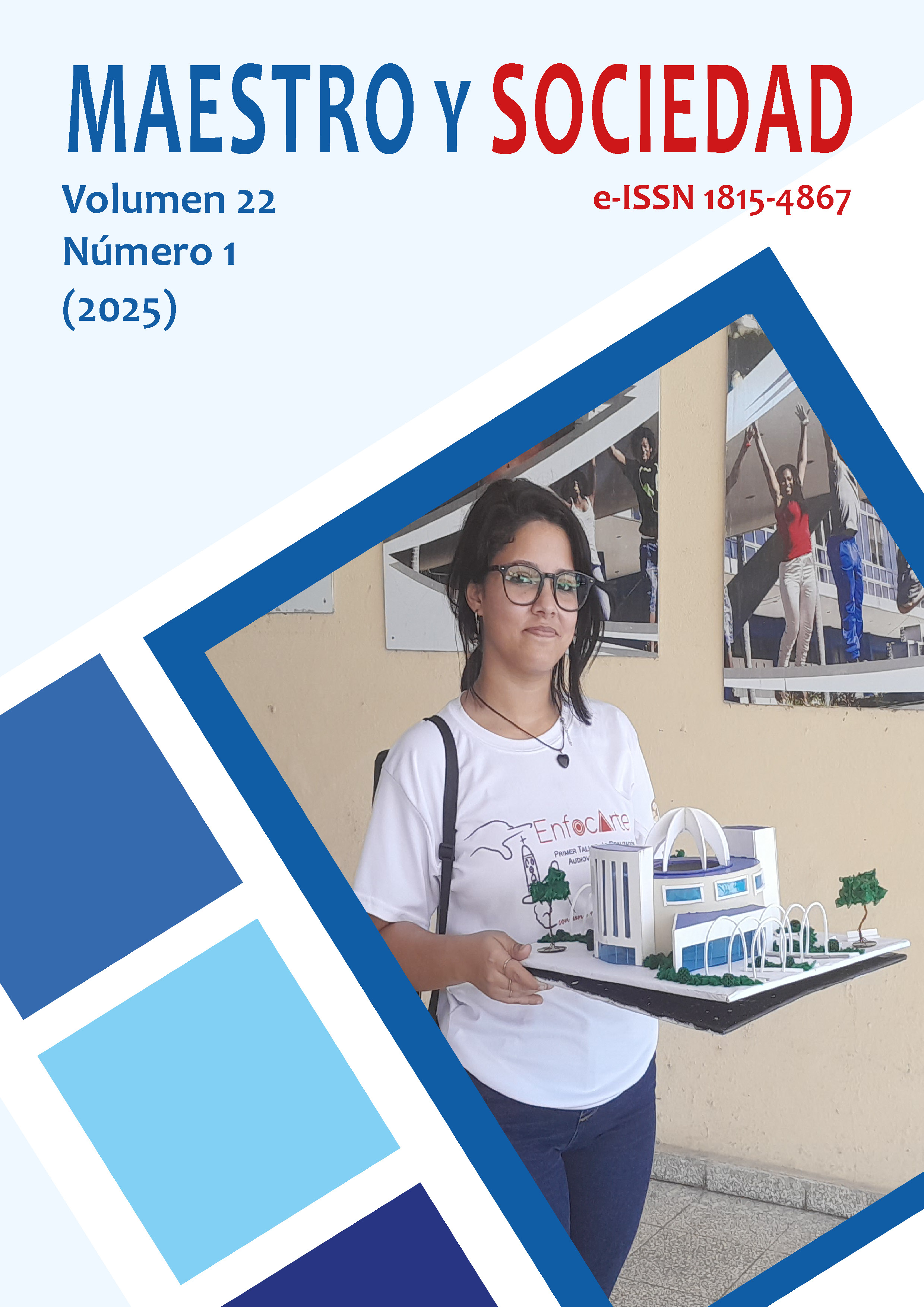Use of the Educoplay tool in the learning of mathematics for fourth year students of elementary basic
Keywords:
teaching-learning, learning mathematics, Educaplay toolAbstract
Introduction: The purpose of this thesis is to propose a teaching strategy to help promote the learning of mathematics in fourth-year students of basic education at the "Luis A. Martinez" educational unit using Educaplay technology. Interactive and personalized activities were implemented using the Educaplay platform, in order to evaluate its effectiveness in learning calculation operations in mathematics. The progress of the students was monitored and quantitative and qualitative data were collected. Materials and methods: The main methods used at the theoretical level were synthesis analysis, inductive deductive and structural systemic; at the empirical level, observation, interview, survey and specialist criteria; at the mathematical statistics level, descriptive statistics were used, which contributed to developing the research, giving an assessment of the proposal and the results achieved with its implementation. Results: The results obtained mean the achievement of better levels of learning and motivation in the subject of mathematics. The teaching strategy is a very valuable tool in the hands of the agents of the teaching process that favors the learning of the students in the subject of Mathematics. Discussion: The way in which the teaching learning process of Mathematics is developed in basic elementary education is limited for the performance of the student in the interaction with the computer and its use in independent activity. Conclusions: The teaching strategy serves as a guiding guide for the action of the group of teachers of this subject for the conduction of the teaching learning process of Mathematics with the use of the Educaplay tool.
References
Ausubel, D. (1983). Teoría del aprendizaje significativo. Fascículos de CEIF, 1, 1-10.
Cedeño Azanki, M. E., Paz Enrique, L. E., Hernández Alfonso, E. A., Jalil Vélez, N. J., Urbay Rodríguez, M., & Zambrano Sornoza, J. M. (2021). Principios para la creación y difusión de recursos de aprendizaje. Editorial Samuel Feijóo. https://n9.cl/3jw53
COLECTIVO DE AUTORES. (2001). Hacia una concepción del aprendizaje desarrollador. Centro de Estudio Superior. Instituto Superior Pedagógico “Enrique José Varona”.
González, J. I., & Granera, J. (2021). Entornos Virtuales de Aprendizaje (EVA) para la enseñanza-aprendizaje de la Matemática. Revista científica de FAREM-Esteli, 49-62. https://repositorio.uisrael.edu.ec/handle/47000/2971
Granados Ramos, A. C. (2020). Diseño de una propuesta pedagógica para el fortalecimiento de la resolución de problemas matemáticos y la comprensión del lenguaje algebraico a través de la herramienta educaplay en estudiantes de grado once de la Institución Educativa San Isidro de Ciénaga de Oro-Córdoba [Tesis de doctorado. Universidad UMECIT].
Herrera, C. (2016). Cree actividades educativas multimedia con Educaplay. Compartir palabra maestra. http://compartirpalabramaestra.org/herramientas/cree-actividades-educativa-multimedia-con-educaplay
López Granados, N. I., & Moctezuma Plata, J. A. (2023). B-Learning: Estrategias de enseñanza aprendizaje en la plataforma educativa Schoology: caso bachillerato Escuela Superior Actopan. DIVULGARE Boletín Científico De La Escuela Superior De Actopan, 11(Especial), 1-9. https://doi.org/10.29057/esa.v11iEspecial.10308
Lugo, M. T., & Ithurburu, V. (2019). Políticas digitales en América Latina: tecnologías para fortalecer la educación de calidad. Revista Iberoamericana de Educación, 79(1), 11-31. https://n9.cl/piqd8
Ordoñez, C. L., & Castaño, C. (2011). Curso de Pedagogía y Didáctica. Centro gráfico Ministerio de Educación – Dinse.
Ortiz Aguilar, W., Santos Díaz, L., & Rodríguez Revelo, E. (2020). Estrategias didácticas en entornos virtuales de enseñanza-aprendizaje universitarios. Revista Opuntia Brava, 12(4), 68-83. https://n9.cl/l2aku
Pérez Gómez, Á. (2012). Educarse en la era digital. Morata, S. L.
Rodríguez del Castillo, M. A. (2004a). Aproximaciones al estudio de las estrategias como resultado científico. Universidad Pedagógica “Félix Varela”.
Rodríguez del Castillo, M. A. (2004b). Tipologías de estrategia. Villa Clara. Centro de Ciencias e Investigaciones Pedagógicas. Universidad Pedagógica “Félix Varela”.
Vygotsky, L. S. y Cole, M. (1984). La mente en la sociedad: desarrollo de procesos psicológicos superiores. Prensa de la Universidad de Harvard.
Published
How to Cite
Issue
Section
License
Copyright (c) 2025 Viviana Josefa Mosquera Yépez, Yasmina Lorena Martínez Delgado, María Beltrán Mesa, Tatiana Tapia Bastidas

This work is licensed under a Creative Commons Attribution-NonCommercial-NoDerivatives 4.0 International License.
This journal provides immediate open access to its content, based on the principle that offering the public free access to research helps a greater global exchange of knowledge. Each author is responsible for the content of each of their articles.



























 Universidad de Oriente
Universidad de Oriente 